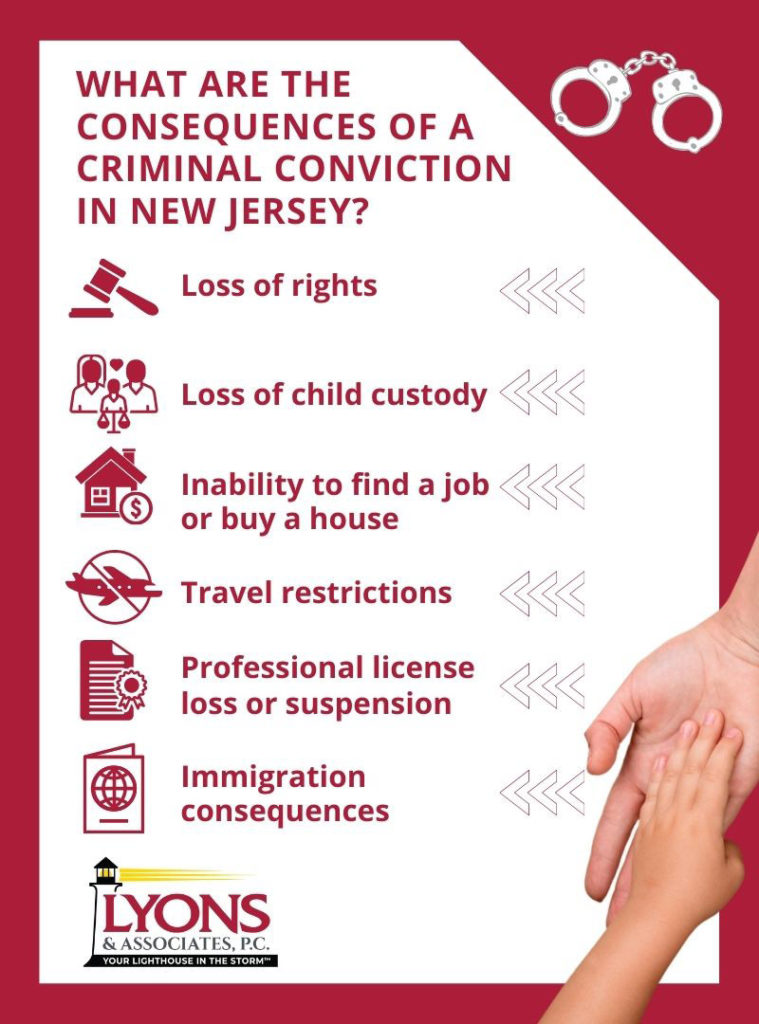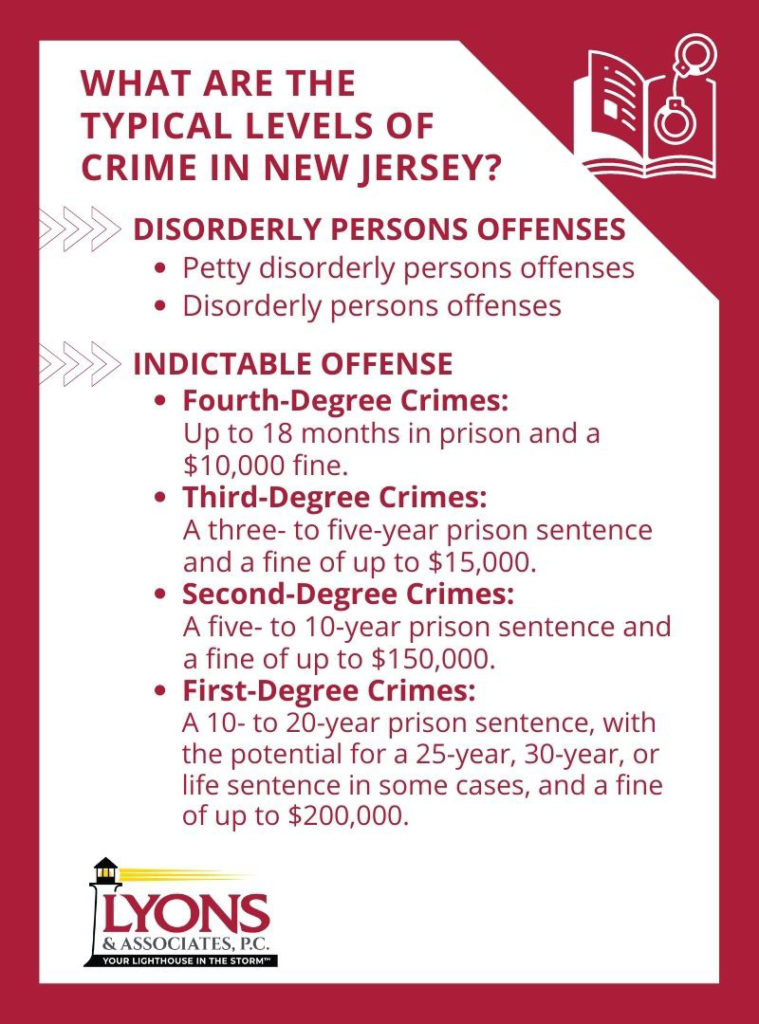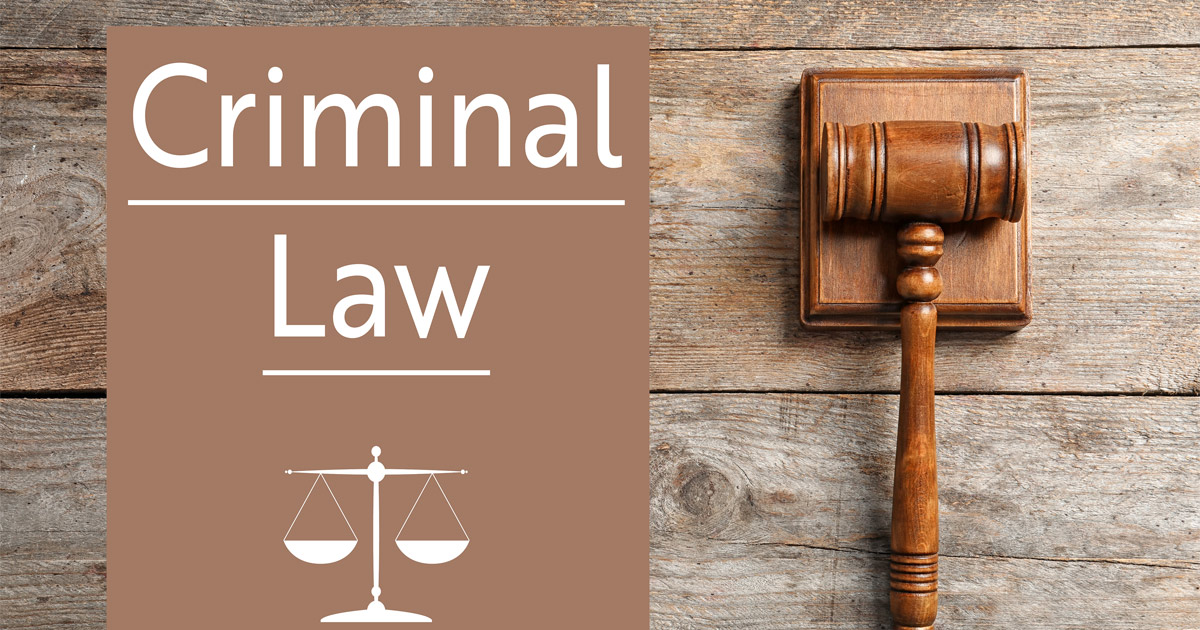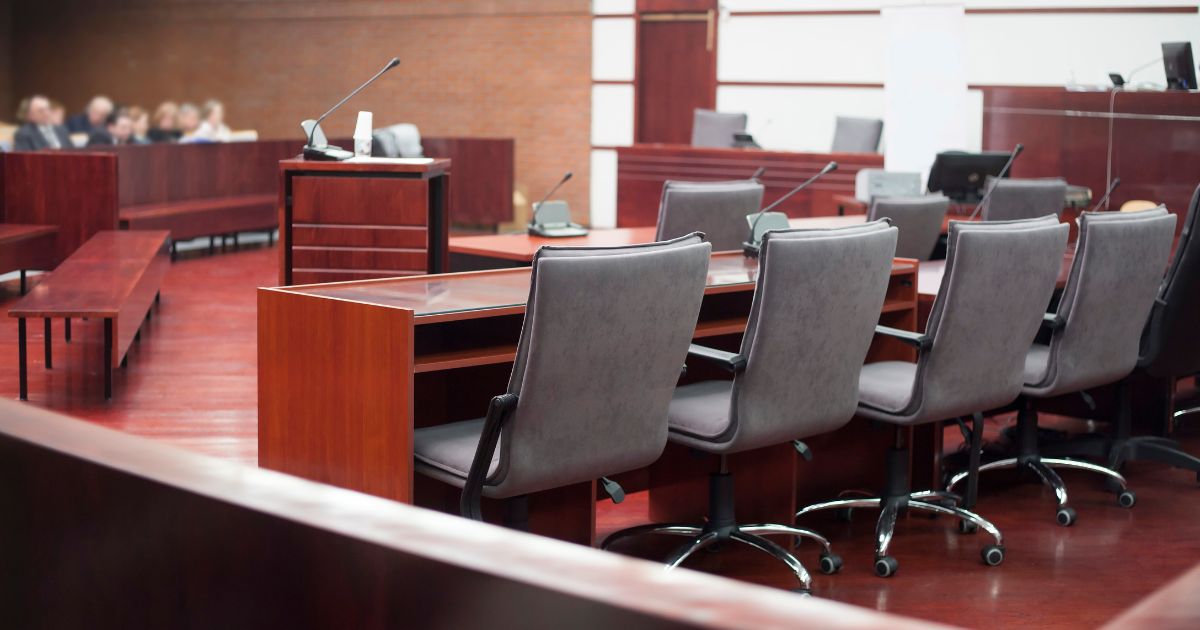New Jersey Criminal Defense Lawyers
Criminal Law Charges and You
The criminal justice system in the state of New Jersey can be a lonely and confusing place. If you are facing criminal charges, you want to ensure that you have skilled legal representation from a lawyer with experience in criminal justice matters. They will be able to detect flaws in a prosecutor’s case that could lead to a reduced sentence and even an acquittal.
Hiring an experienced criminal defense lawyer as soon as possible will allow them to represent you and be your advocate when you are dealing with both the police and the prosecutor. Our legal team knows the New Jersey court system and will protect you from any legal traps you may encounter and help you achieve the best outcome possible based on the available evidence.
Criminal Law Practice Areas
Our attorneys at Lyons & Associates, P.C. can help you with a variety of criminal matters. If you are facing charges for any of the following offenses, our team will work with you to help you get the most favorable result possible:
- Expungements: The state believes in giving individuals convicted of certain criminal offenses a second chance. It understands how difficult it can be to find a job, secure a loan, or engage in other activities with a criminal record. That is why the state offers the opportunity to expunge or eliminate certain criminal convictions from your record. We can assist you with that process and let you know if you qualify for an expungement.
- Drug charges: These can range from minor offenses to serious crimes. For certain charges, you can find yourself facing significant prison time and even losing your driver’s license. The type of drug of which you are in possession, the quantity found in your possession, whether there is an allegation of distribution, and your intent all play a factor in the charges that you could be facing.
- Gun offenses: New Jersey takes gun offenses seriously, ranking seventh in the top 10 states with the strictest gun laws and gun violence prevention with one of the toughest concealed carry permitting systems and ghost gun prohibitions in the nation. If convicted, gun offenses carry a minimum five-year prison sentence for crimes involving handguns, assault weapons, or machine guns. New Jersey’s strictly enforced gun laws also apply automatic additional penalties for other violent crimes committed with the use of a firearm.
- Insurance fraud and healthcare fraud investigations and prosecutions: Insurance carriers can be quite aggressive in their audits of healthcare providers, and this area is highly regulated, so regulatory compliance with the New Jersey Administrative Code and state statutes is critical to prevent problems during an audit.
- Juvenile crimes: Although the criminal justice system for minors is different than that for adults, the consequences can also be severe. If your child is charged with a serious crime and they are under 15 years old, they will not face a jury but rather a judge in family court. We can help your child navigate through their legal problem. If the charge is serious enough, a prosecutor could make an application to have our child charged as an adult.
- Municipal court offenses: This is where disorderly persons and petty disorderly persons offenses are heard along with motor vehicle offenses. Other common “minor” offenses may include harassment, disorderly conduct, simple assault, bad checks, and thefts under $200.00. While the court system may call such charges “minor,” they are not minor to you, and we treat the defense of all criminal matters as serious. Driving while intoxicated (DWI, DUI) is one of the most serious motor offenses that a person can be charged with, and DWI’s can never be expunged. All municipal court charges should be considered serious, and you should consult with an attorney prior to appearing in court.
- Parole planning, appeals, revocations, and modification of conditions of parole: If you have a family member or friend coming up for parole, you should consult with an experienced parole attorney four to six months before the parole eligibility date. There is no guarantee that an inmate will be released at the time of eligibility. It is critical to have an attorney prepare a proper parole plan and create a compelling record to maximize the inmate’s chances of being released at the time of the parole hearing(s).
- Relief and removal from Megan’s Law and parole supervision for life: Our law provides a second chance for persons who have been convicted of a sex crime and have reporting requirements and/or parole supervision for life. If you are on Megan’s Law, you should consult with an attorney to determine if you qualify for relief from Megan’s Law.
- Sex crimes: Being charged with a sex crime in New Jersey can be a serious matter. If convicted, you could find yourself having to register on Megan’s Law and reporting and even supervision could potentially follow you for the rest of your life. The nature and degree of sex crime that you are found guilty of or plead guilty to plays a significant impact on whether you must register as a sex offender and whether you will be placed on parole supervision for life. We will fight vigorously to defeat the charges or work to reduce your charges to limit jail exposure and limit the chances of Megan’s Law following you around for the rest of your life.
- Violent crimes: Violent crimes are criminal acts that physically harm or threaten to harm others and carry harsh penalties, including possible life in prison without the possibility of parole. New Jersey is strict on punishments for violent crimes, and state law under the No Early Release Act requires offenders convicted of violent crimes to serve at least 85 percent of their sentence before being eligible for parole.
- White-collar crimes: Although these crimes do not involve any violent acts against people, they can certainly do their share of damage to others. White-collar crimes may involve fraud, computer crimes, or stealing money from businesses or other individuals. The more a person is accused of stealing, the greater the loss, and the worse their potential prison sentence and fines can be. You will need a lawyer who is on your side and can evaluate the prosecutor’s case, investigate and identify all defenses, and prepare the best possible defense to defeat the charge or mitigate the sentence exposure.
Our lawyers have experience with a variety of criminal matters, and we want to use that experience to help you with your situation. No matter the size of the case or the severity of the charge, we will help you get through it and vigorously represent you so that we can help secure the best outcome possible.
What Are the Consequences of a Criminal Conviction in New Jersey?

Facing a criminal conviction is serious business in New Jersey. Although the obvious consequences can land you in jail or face a hefty fine or both, there are other long-lasting, and in certain cases permanent, consequences for having a criminal conviction on your record. Those consequences include the following:
- Loss of rights: If you are convicted of a crime, you will be barred from having a Firearms ID Card and will not be permitted to be in possession of a gun. Possession of a firearm after the conviction of a crime or the imposition of a final restraining order gives rise to additional serious charges. Even being accused of domestic violence, it is likely you will have your Firearms ID card and firearms seized, and you may lose your right to own or possess a gun. Even if a gun was not involved in the crime for which you were convicted, you could still lose this constitutional right. A conviction for a crime will bar you from serving on a jury. You could also lose your right to vote. Although New Jersey does not take your voting rights away permanently, you will be prohibited from voting while you are in jail, on probation, or on parole.
- Loss of child custody: If you have children, your time in prison may not be your only time away from them. You could lose custody of them if you are convicted of a crime or face accusations of domestic abuse. You may encounter a divorce or child custody battle years later, and your spouse can use your conviction as an argument for why you should not have custody of your children.
- Inability to find a job or buy a house: Having a criminal conviction on your record can close doors for you in the future. Certain employers will be reluctant to hire a person with a criminal background, and potential employers are allowed to ask about and check your background. In addition, a criminal conviction will label you as a high-risk candidate when it comes to securing a loan to purchase a home. With that designation, it may prove difficult for a bank to lend you money.
- Travel restrictions: While on probation or on parole, your ability to travel outside of the state might be limited. That means if you have any family functions or friends you were planning to visit, you will not be able to do so in the short term. A conviction may preclude you from traveling to other countries.
- Professional license loss or suspension: If you hold a professional license that you maintain for your current job or your career, that license could be in jeopardy after a criminal conviction. Depending on the severity of your conviction, you could face a reprimand, license suspension, license revocation, or disbarment.
- Immigration consequences: If you were not born in the United States or are not a naturalized American citizen, you may be put into deportation proceedings. If you leave the United States, you may be denied re-entry.
Given these ramifications, it is essential that you speak with a criminal lawyer who can fight on your behalf to defeat the criminal prosecution or to reduce the charges you face.
Why Should I Hire a Lawyer for My Case?
A defendant who represents themselves or is pro se will not have the experience or the knowledge to effectively manage a criminal case in New Jersey. That lack of experience or knowledge might mean a person could face greater penalties than they would have with a lawyer on their side.
A criminal lawyer knows the system and the legal process. A lawyer who has worked in a particular area may also know the prosecutor and the judge. These insights could be invaluable to you if you are seeking a plea deal. An attorney will also know how to approach the prosecutor and the judge so that they look as favorably on your case as possible.
In addition, a lawyer receives years of education and training to study the law. They know what to look for in a criminal case and where to find the flaws or the areas where they might be able to take advantage. The burden of proof is on the prosecution, and an experienced lawyer can find any defects or weaknesses in the prosecutor’s case that could turn the entire trial in your favor.
What Are the Levels of Criminal Charges in New Jersey?

New Jersey has its own method of classifying criminal charges that differs from the way other states break it down. Unlike many other jurisdictions and unlike what you typically see on television, New Jersey does not have “felonies” and “misdemeanors.” New Jersey structures criminal charges as either “disorderly persons offenses” or “indictable offenses”, i.e., “crimes.” Within each of these categories are structured ranges of punishment for jail exposure, fines, and penalties.
Disorderly persons offenses are broken down into two levels: disorderly persons offenses and petty disorderly persons offenses. The word “disorderly” in this instance is used to describe a level of offense and punishment. Not all disorderly persons offenses require you to be disorderly in your conduct as the term is commonly understood. Such charges are heard in municipal court. You do not get a jury trial in municipal court for disorderly persons offenses, petty disorderly offenses, or motor vehicle offenses.
Indictable offenses, i.e. crimes, are charges that are heard in New Jersey Superior Court. If charged with an indictable crime and you have a right to have the charges heard, in the first instance, by a grand jury, and if “indicted,” you have the right to a jury trial.
It is important when you are facing criminal charges you know the specific level of disorderly persons offense and/or the degree of the crime for which you are being accused.
Many charges including theft, bad checks, and assaults may be either disorderly persons offenses or indictable crimes, depending on the severity of the conduct, the severity of the injury, or amount of money that was taken.
Municipal courts hear motor vehicle summonses and disorderly persons offenses.
There are two levels of Disorderly Persons Offenses:
- Petty disorderly persons offenses: This is the lowest level of criminal charge. There are numerous petty disorderly persons offenses, which may include harassment, disorderly conduct, obstructing public passage, failure to obey a reasonable request to move, disrupting meetings, smoking in public place that prohibits smoking, sale of cigarettes to persons under 21 years old, possessing alcohol on school property without permission, and numerous other offenses that are considered “minor” criminal offenses that do not entitle you to a jury trial.
Petty disorderly persons exposure: Up to 30 days in jail and a $500 fine.
- Disorderly persons offenses: There are numerous disorderly persons offenses, which include simple assault, theft under $200, shoplifting under $200 or bad check under $200, harassment, disorderly conduct, maintaining a nuisance, sale of cigarettes to persons under 21 years old, possessing alcohol on school property without permission, and numerous other offenses that are considered “minor” criminal offenses that do not entitle you to a jury trial.
Disorderly persons exposure: Up to six months in jail and a $1,000 fine.
Indictable Crimes Are Heard in New Jersey Superior Court and Have Designated Levels of Seriousness and Penalties
The level of offense or crime play a defining role in the types of sentences, jail, fines, and penalties you could be facing. Typically, but not always, prosecutors seek to secure a conviction in the highest level of a crime. A defense lawyer’s job is to prevent the filing of a charge to prevent a conviction, and if a conviction is to occur, to get the lowest and most favorable sentence for a client that is possible.
There are four levels of crimes:
- Fourth-degree crimes: Up to 18 months in prison and a $10,000.00 fine.
- Third-degree crimes: A three- to five-year prison sentence and a fine of up to $15,000.00
- Second-degree crimes: A five- to 10-year prison sentence and a fine of up to $150,000.00.
- First-degree crimes: A 10- to 20-year prison sentence, with the potential for a 25-year, 30-year, or life sentence in some cases, and a fine of up to $200,000.00.
Depending on the specific statute charged, the fine and penalty exposures may exceed the general sentencing provisions.
When Should I Hire a Criminal Defense Lawyer?
The earlier you can hire a lawyer, the better it will be for you and your case. As soon as you believe that the police suspect you of committing a crime, you should reach out to a lawyer. Although it might seem as if there is nothing a lawyer can do, there is plenty that they can do. Just because you are suspected does not mean you will be arrested, just because you are arrested does not mean you will be formally charged, and just because you are charged does not mean you will be convicted.
A lawyer should represent you with the police as they investigate a crime. There might be certain instances where the police may be convinced not to file a charge. If a lawyer is involved and a charge is inevitable, the attorney may be able to arrange for a voluntary and peaceful surrender.
New Jersey law, in some instances, permits a defendant to be held in jail without bail pending the criminal prosecution. It is therefore critical to obtain an attorney as soon as possible to seek pretrial release, investigate, and work on confirming facts for a defense at the earliest possible time. The earlier your lawyer is involved with your case, the more quickly they can investigate, interview witnesses, locate exculpatory evidence, and begin to build your defense.
If you become aware that you are the subject of a criminal investigation, before you speak with anyone, before any charges are filed, you should retain counsel because counsel may be able to prevent charges from being filed.
New Jersey Criminal Defense Lawyers at Lyons & Associates, P.C. Will Fight on Your Behalf
If you have been charged with a crime or even if you are accused of a crime, do not face the massive criminal justice system alone. You have rights, and they should be defended. Our New Jersey criminal defense lawyers at Lyons & Associates, P.C. will vigorously defend those rights and ensure that you get a fair trial and the outcome that you deserve. To learn more or to schedule a free consultation, call us at 908-575-9777 or contact us online.
Our offices are in Somerville, Morristown, and Freehold, New Jersey. We have a statewide criminal defense practice serving the entire state, including Somerset, Morris, Warren, Hunterdon, Middlesex, Union, and Monmouth Counties. We will proudly serve clients in Somerset, Somerville, Bridgewater, Morristown, Parsippany, Rockaway, Short Hills, Chatham, Randolph, Madison, Morris Plains, Woodbridge, Edison, New Brunswick, Dunellen, and many other municipalities.
Criminal Law Resources:
-
Understanding Reasonable Suspicion in Traffic Stops: A Case Study of the Failure to Yield to Emergency Vehicles
The Fourth Amendment of the U.S. Constitution and Article I, Paragraph 7 of the New Jersey Constitution both offer critical protections against unreasonable searches and seizures, ensuring that individuals are …
-
What Are the Consequences of Armed Robbery in New Jersey?
Armed robbery is one of the most serious crimes a person can commit in New Jersey. Defined by the use or threat of force, typically with a weapon, during the …
-
What Are the Different Defenses Against Armed Robbery?
If you have been charged with armed robbery in New Jersey, the prosecutor has the burden of proof. Your criminal defense attorney can help you defend against the charges if …
-
What Is Considered Armed Robbery in New Jersey?
Armed robbery is a serious criminal offense in New Jersey with severe penalties. While robbery is a second-degree crime that involves theft paired with an act or threat of violence, …
-
How Do You Pick the Best Lawyer for a Drug Charge?
If you have been charged with a drug crime in New Jersey, you could be facing severe consequences. Penalties for drug crimes can range from steep fines to a lengthy …
-
Can a Drug Diversion Program Help You Avoid a Conviction?
If you have been arrested on drug charges, you may be concerned about the potential long-term consequences of a conviction. In New Jersey, there is an alternative to traditional prosecution …
-
Should You Take a Plea Deal for a Drug Charge?
If you are facing criminal drug charges, you may be presented with the option of accepting a plea deal, a legal strategy that involves pleading guilty to one charge in …
-
How Does Evidence Impact a Drug Case?
If you are facing drug charges, it is normal to experience a range of feelings, including fear and uncertainty about the outcome of the case and the penalties you could …
-
What to Expect at Your First Court Date for a Drug Charge?
If you are facing drug charges in Freehold, appearing at your initial court date is the first step in the New Jersey criminal justice process. This can be a harrowing …
-
Can You Brandish a Gun on Your Property in Freehold, New Jersey?
New Jersey has some of the strictest gun laws in the nation, with many offenses carrying mandatory prison terms and parole ineligibility for those convicted of firearms charges. Many states …












